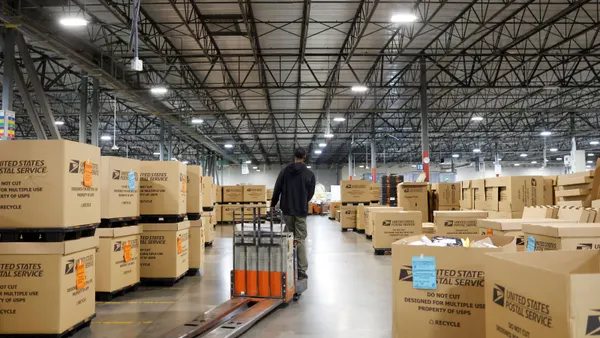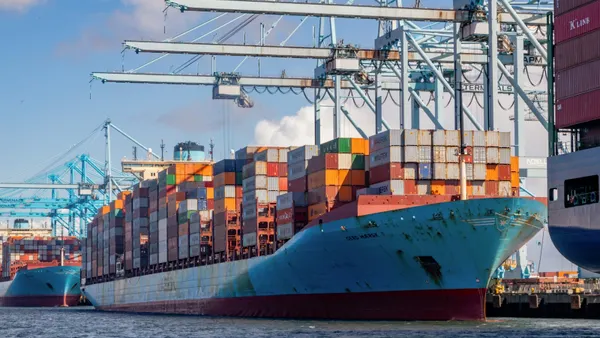Dive Brief:
- The Port of Virginia launched a truck reservation system (TRS) Thursday, the port said in a press release emailed to Supply Chain Dive. The first phase rolls out at Norfolk International Terminals, and the next phase will come this summer at Virginia International Gateway.
- Under the TRS, trucks must have reservations if arriving between 5 a.m. and 7 a.m. Monday through Friday, and 7 a.m. and 9 a.m. on Saturdays. If a truck arrives during those hours without a reservation, the Port of Virginia says it will be turned away.
- The TRS serves as a planning tool that allows the port to manage the flow of trucks. "It creates efficiency for our terminal operations teams and for drivers, [and] it provides greater visibility to cargo owners," the release stated.
Dive Insight:
With container volumes growing at the Port of Virginia, it will be critical for the port to manage intermodal transport to avoid lines and congestion at its terminals.
Container volumes at the port grew more than 7% last year — and that growth is expected to continue. The Virginia Port Authority projects annual container capacity at Norfolk will increase 46% by 2020. That's in part due to a $375 million expansion at the terminal.
Port congestion can create serious delays across the supply chain, spawning the need for ports to manage their truck flows. Several ports in the U.S. — including New York and New Jersey, Los Angeles and Oakland — have adopted a truck reservation system to manage congestion and traffic flows.
From the trucking industry's perspective, the TRS adds an additional level to what could be seen as bureaucracy and red tape, adding even more fuel to the fire surrounding the electronic logging device (ELD) mandate debate.
At the same time, however, having a reserved time to drive to a port increases efficiency for trucks and allows transports to happen more quickly. That means drivers wouldn't have to wait around as their clock continues to tick.
That could also mean fewer delays overall, which is good news all around for the carrier, the shipper and the port.












